Updated: August 13, 2025
AKA alternative search engines. Here's one for you. In 2025, you know that your online habits are being profiled. All the time, by almost everyone, a million times over. Indeed, when you do any sort of search anywhere, your queries (your questions) tell a great deal about you to whomever you ask. Thus, if you tend to utilize Google or Bing for your search, you're "disclosing" tons of personal information. On its own, this ain't a big problem, because the actions are voluntary (if unavoidable in the modern world). But then, throw in the slew of Google and Microsoft services everywhere, and your search becomes a virtual mirror of your identity. If you're keen on privacy, you might want to consider not doing so, or to minimize your interaction with these search engines.
Well, question no.1: doable? The answer is: yes and no, mostly no. As it happens, there are very few search engine indexes out there. Whatever route you take, you're most likely going to end up with one or the other. Question no.2: why bother then? Well, privacy. And you're in luck! You can use search without giving too much away. Proxy search engines. So, no, you don't avoid Google or Bing, but yes, you use these proxies, and they make your search somewhat more private. Sounds cool. Let's explore, shall we?
Startpage
This is my go-to alternative to Google. Indeed, in the background, Startpage uses Google's results. Your queries are done in a private manner, with little to no data going to Google. However, remember, true anonymity is almost impossible online, and there are billions of ways to track you, correlate your activity and then some. That said, Startpage feels like Google from a while back.
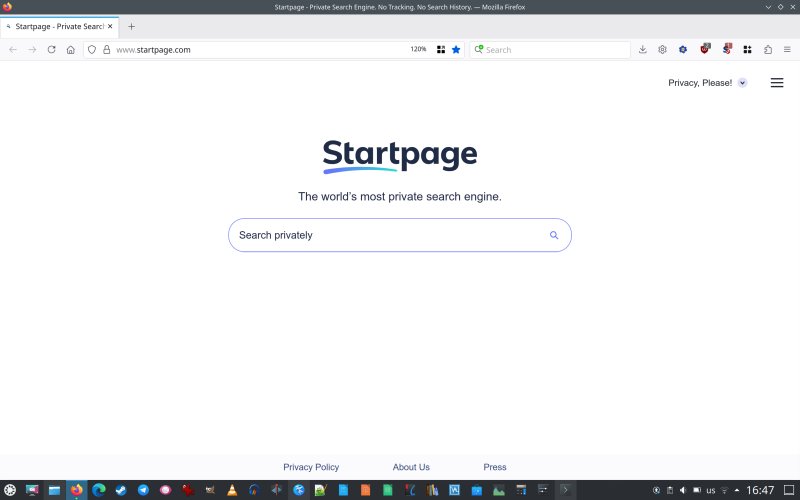
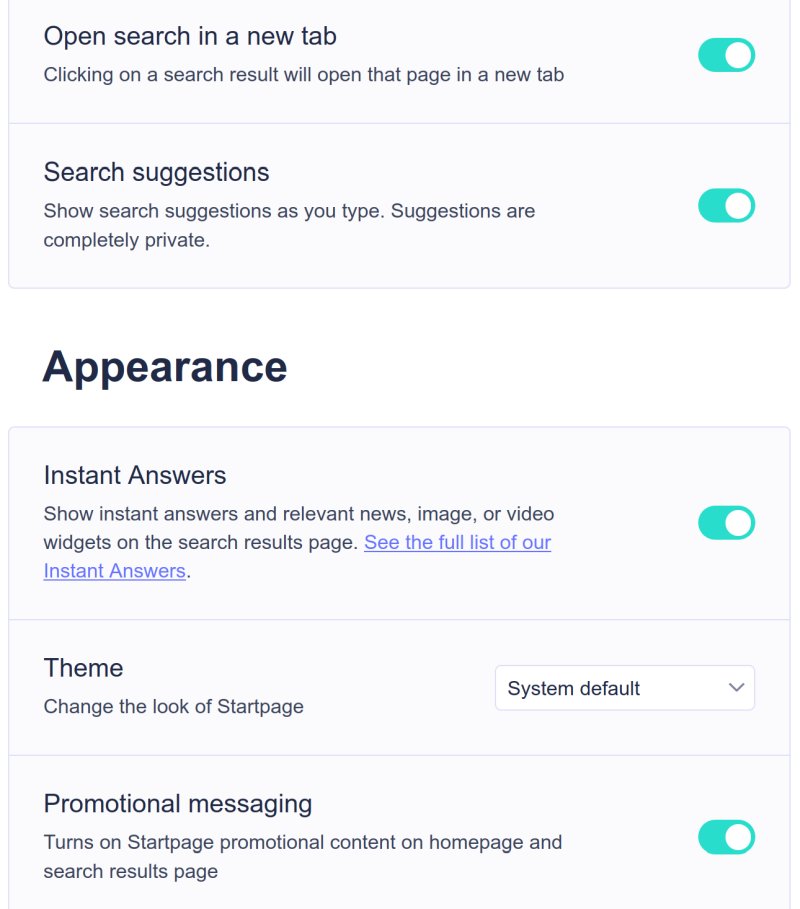
You get simple, straightforward answers. Image search is also quite good, and you can filter media by size, file type or license. The engine allows you to customize the results, including search suggestions, promotions and instant answers, all of which you can toggle off. Coincidentally, Startpage is owned by, well, Startpage, a Dutch company, which also offers a (paid) mail service.
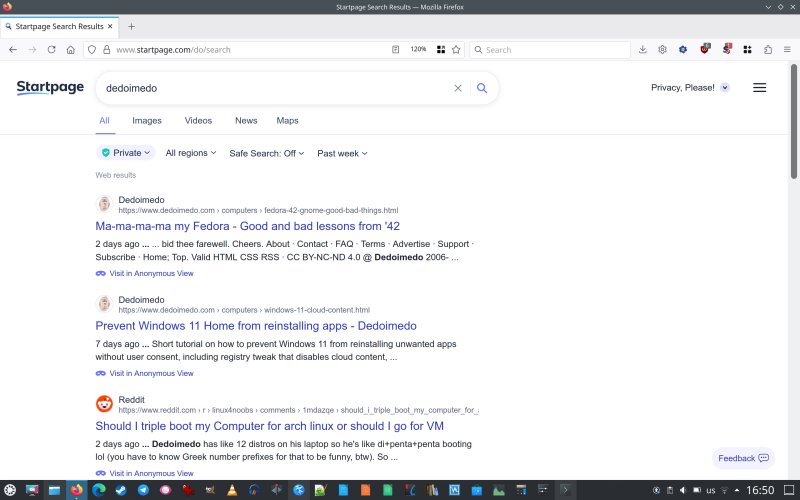
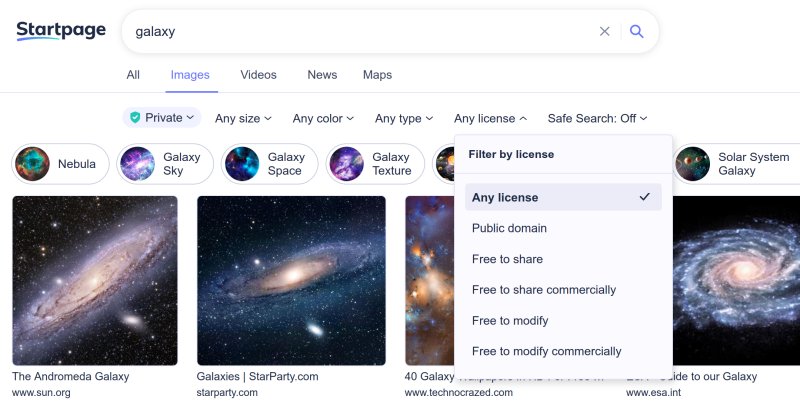
Recently, I showed you how to use Google without the unnecessary pseudo-AI overviews and such. This is even better, as you gain a little more extra privacy, and you don't need to think too much about how, what or when. For me, privacy aside, the uncluttered view is the primary advantage. I resent modern, hyperactive pages, with tons of pointless information thrown at me from every which direction. Startpage indulges, offering a simple feed of results. No cutesy summaries, no popups, no nonsense. Old school style.
Qwant
This search engine comes from France. It uses Bing data. Caveat: not available in most countries. You can run it in the EU, northern parts of North America, China, Australia, New Zealand, and a few more territories. To access this tool elsewhere, you will need a VPN or alike.
In my view, Qwant feels a bit more more rudimentary than say Startpage. I also found the options a little bit confusing. You can set the "Region" - much like you can in Bing or DuckDuckGo - but from what I've been able to discern, this dictates the interface language and serves as a preference for results. It does not seem to limit the results to the specific region. You can also allow sponsored shortcuts, and there's a Firefox extension, too.
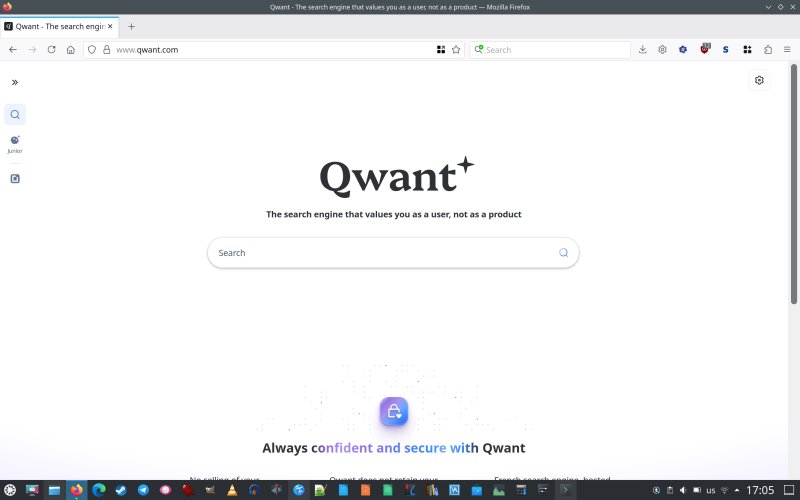

In terms of actual search, the look and feel is more "modern" Google, with additional information to the right of the results, plus suggested follow-up search terms. While this makes the page look more engaging, it also makes it busier. Still better than standard Google or Bing, but worse than just a single column of results.
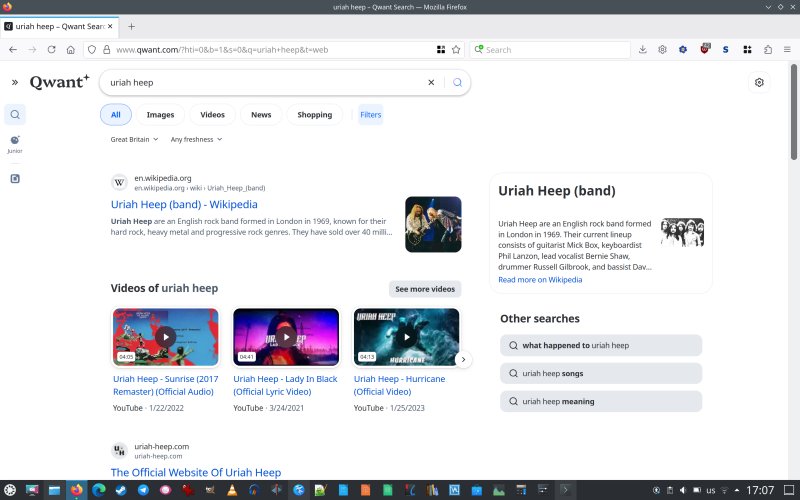
Qwant also has several products, accessible from the sidebar on the left. I wasn't able to fully hide this sidebar, and that bothers me. One, I hate sidebars of this nature, and too many products and pages use them. Two, if you use vertical tabs, this creates visual clutter. Taste aside, Qwant also has a kids-friendly mode, and you can get free cloud storage, if that's your thing. Decent, useful, but still a bit exploratory, methinks.
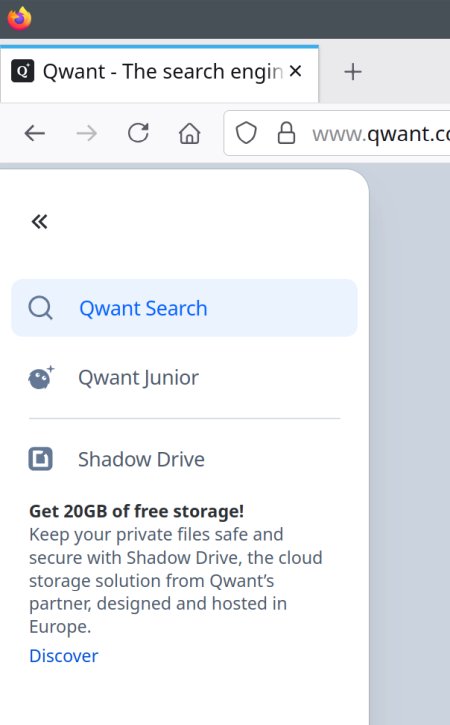
DuckDuckGo
I've talked about this search engine tons of times in the past, so there's no need to repeat myself too much. This is a pretty useful, versatile tool, with lots of interesting options and features. More recently, it's also gained an AI mode. Nope. Now, luckily, you can toggle this off. Rightly so, I did that, immediately.
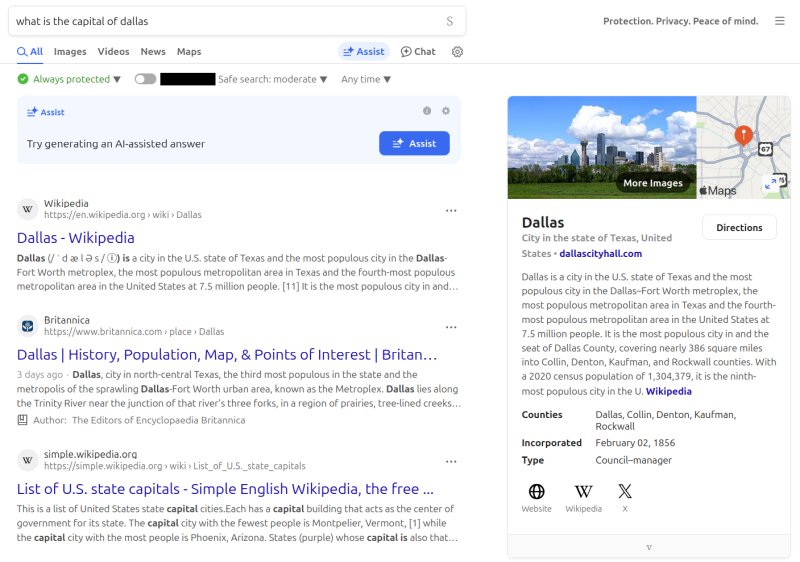
Every single engine fails the legendary "Master of the Internet, capital of Dallas" meme question.
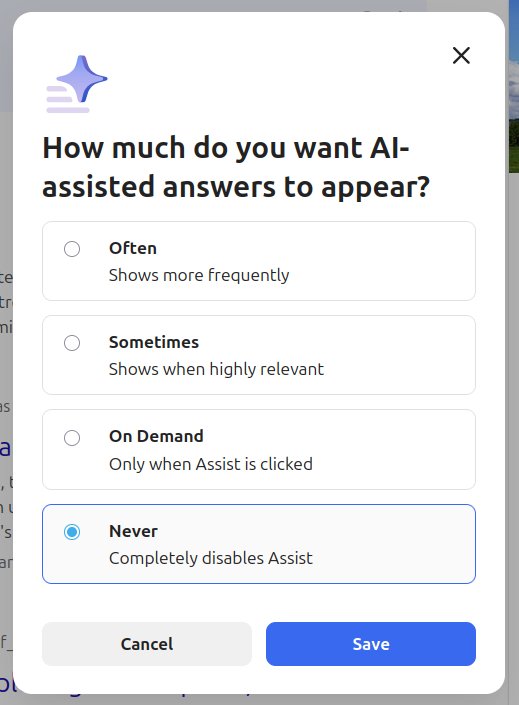
On the plus side, DuckDuckGo is versatile, there's a browser, too, and as I tested recently, on your Android, you can also use the browser's VPN-like functionality to remove ads in other apps. It's an ecosystem, really. In the backend, you get Bing data. The UI isn't the prettiest or most ergonomic by default, but there are multiple themes to choose from, if you like color and contrast.
The UI is a bit more cluttered - even more than Qwant, but less than the two big names, especially once their own AI pixies kick in. Then, it's an ADHD fireworks. I'm not keen on DDG's AI mode, its necessity or anything, but I do understand why the company is doing it, and I'm grateful that you get a simple toggle. Such a toggle would not have made me explore these three engines if Google and Bing deigned with a little bit of user-focused respect.
Conclusion
I shall now bring this article to its end. Did we avoid Google or Bing? Nope, we did not. They are still there, and the three engines I showed you rely heavily on their indexes. But we went through an intermediate party, which offers more privacy. Less tracking, less profiling. Not bad, especially if you don't need to compromise on quality, so to speak. You get the same data, with fewer annoyances.
Overall, in terms of pure searchability, Startpage is the cleanest, purest option. DuckDuckGo has the richest, most mature ecosystem. Qwant works well, there's free storage, but it's not available to everyone worldwide, and it feels a bit experimental. That said, the engines work as well as you expect, with similar level of accuracy to the big guys. So, take your pick.
And yes, I am aware there are several other tools out there, including various paid ones, but those are outside the scope of this article, for the time being. I wanted to focus on free engines, as replacement for free engines, with all the implications of what free means, and the whole "you're the product" thingie. And in this regard, you have multiple options. Free, private search tools. No AI if you don't want it. Best of all, they aren't exclusive, you can use them in parallel, mix as needed. Well, we're done here. May your Internet be quiet and pristine.
Cheers.